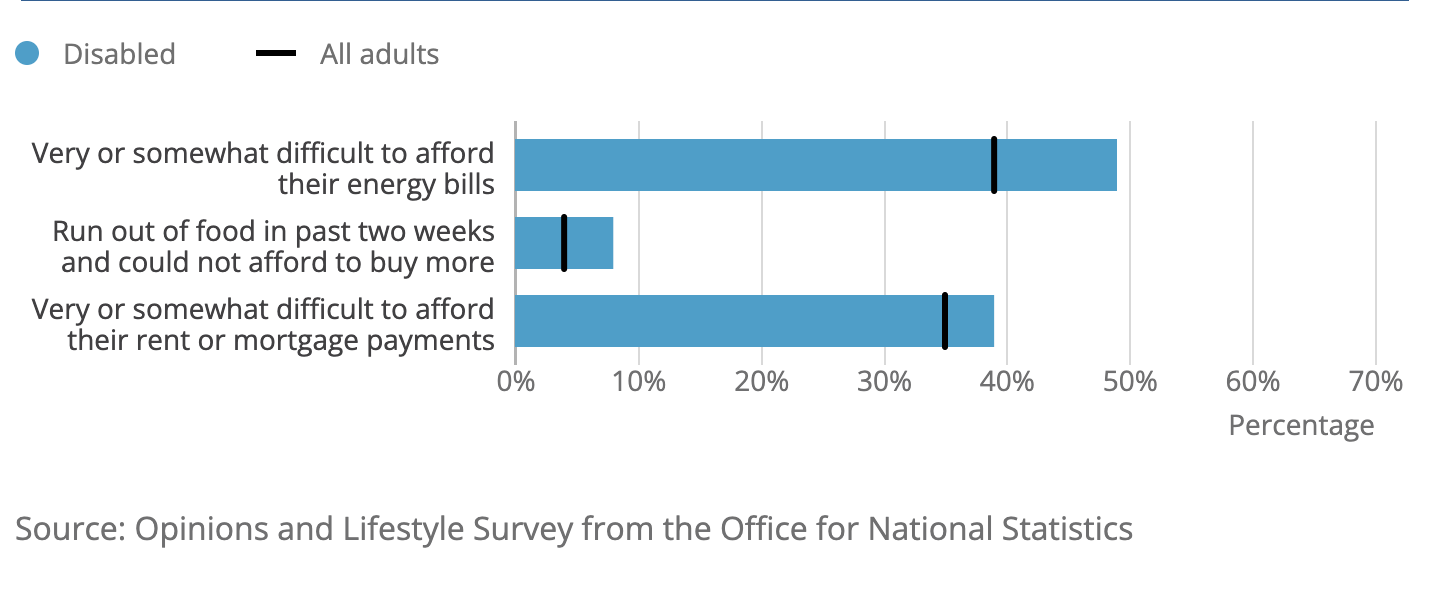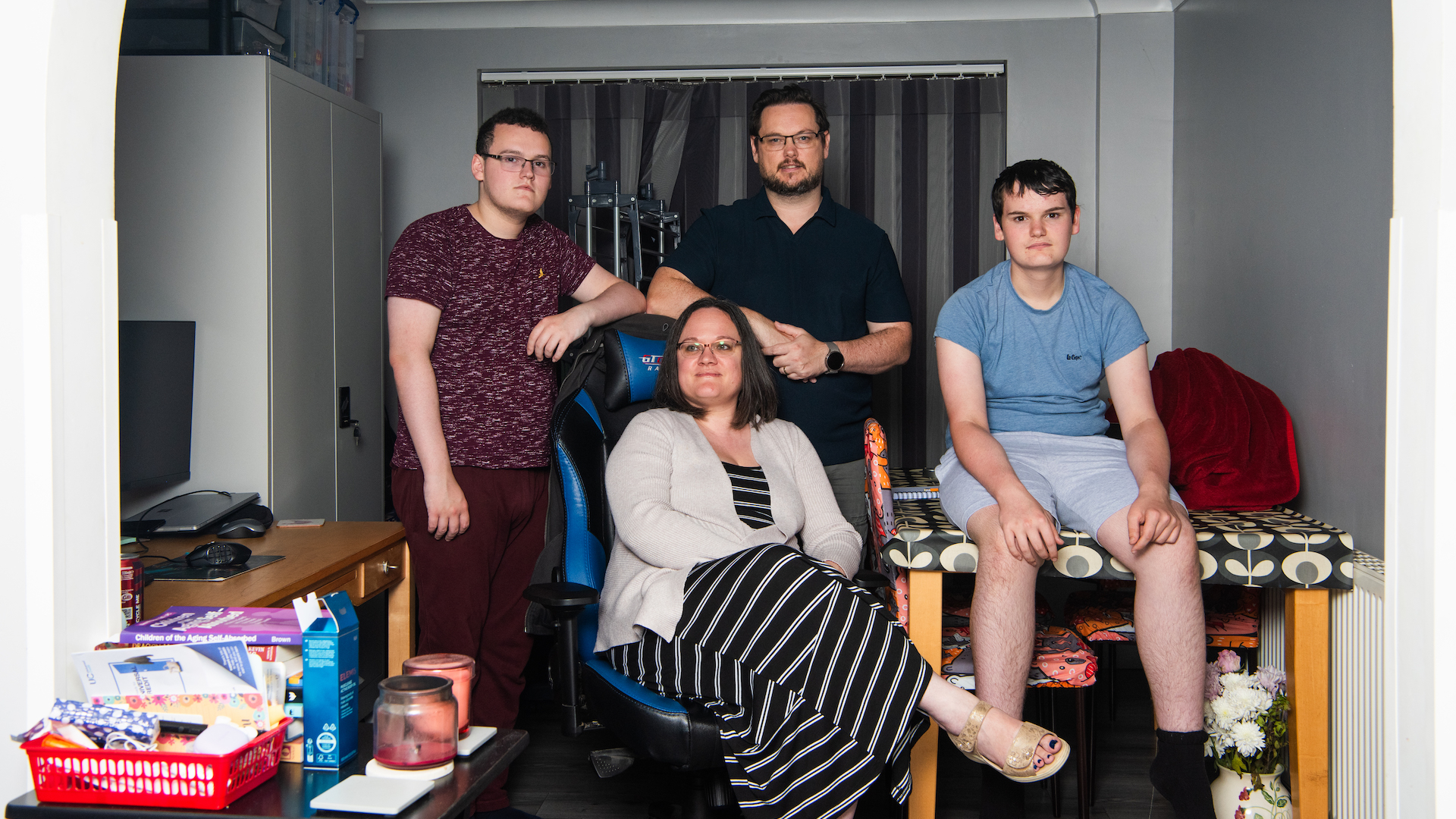More than half of people with complex disabilities are in debt and two thirds are “constantly worrying about bills” in the cost of living crisis.
Smerald added: “Many disabled people are paying exorbitant prices to power essential equipment such as powered wheelchairs or feeding machines, driving some into desperate situations.”
A disabled mother and nurse previously told The Big Issue she has “palpitations” thinking about how her family is going to cope with the rising cost of living.
“It feels like the world is against you,” Laura Smith explained. “Even when you are working and doing a good job with your children and being upstanding good citizens and contributing, it never feels like enough.”
Disability charity Scope estimates that disabled people have extra costs of £975 each month – and this can take its toll on people’s mental health.
Smith said: “Being disabled, sometimes you feel like you’re better off not around. It is so expensive to keep yourself well. It makes you feel guilty for being alive, and you should never feel like that.”
Advertising helps fund Big Issue’s mission to end poverty
Sense is calling for the government to keep its pledge to look into introducing a social energy tariff for disabled people. Smerald said: “This would be a long-term solution that levels the financial playing field for disabled people who have unavoidable extra energy costs.”
Other minority groups are also more likely to be facing difficulties. More than half of Black, African, Caribbean or Black British adults (55%) and Asian or Asian British adults (54%) are finding it a struggle to afford their rent or mortgage.
Nearly half (44%) of Black, African, Caribbean or Black British adults reported being occasionally, hardly ever, or never, able to keep comfortably warm in their home in the past two weeks.
That figure was just under one in three (31%) for Asian and Asian British adults, compared with just under one in five (18%) of white adults.
The overwhelming picture from these statistics is that people are continuing to face a bitter struggle as the cost of living crisis continues – but the crisis is not hitting everyone equally and more must be done to protect marginalised groups.
Advertising helps fund Big Issue’s mission to end poverty
It comes as new research from StepChange has revealed around 21 million people are struggling to keep up with bills and credit commitments in the cost of living crisis. That’s two in five.
A quarter of people have rationed heating, electricity and water to meet credit repayments in the last 12 months.
Vikki Brownridge, chief executive at StepChange, said: “In an election year, tackling such widespread problem debt and improving households’ financial security should be at the top of the agenda for current and potential new governments.
“We’re fast approaching a point where all measures brought in to support people with the cost of living crisis are due to end, yet as this research shows, managing the cost of essentials has become more difficult for people in recent months.”
Find out where to get help to afford your energy bills and more cost of living help here.
Do you have a story to tell or opinions to share about this? We want to hear from you. Get in touch and tell us more.
Advertising helps fund Big Issue’s mission to end poverty










